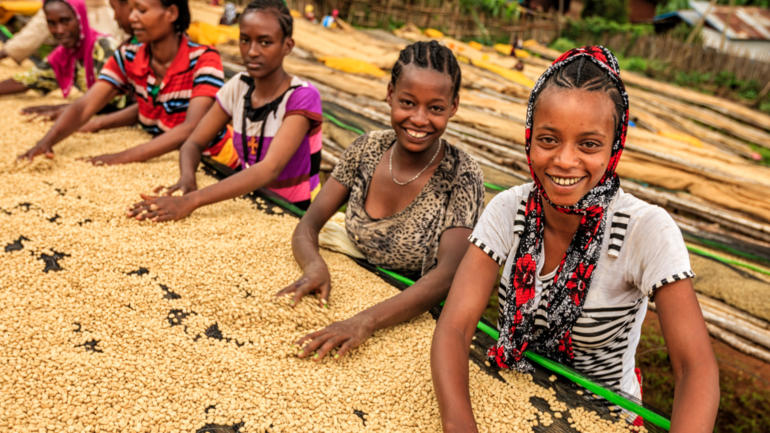This year has taught us that the challenges we face across our food systems are deeply interconnected – the climate crisis, nature loss, rampant inequality – and cannot be tackled in isolation. Creative, holistic solutions brought forward by governments, businesses, UN agencies, donors, and civil society leaders at the local, national, and global scales will drive a more sustainable and equitable future – and today is the time to act. This was clear during the first-ever UN Food Systems Summit (UNFSS) held on 23 September.
Nutrition and widespread malnutrition are fundamentally linked to climate change and nature loss, and deeply exacerbated by differential access to healthy diets. The COVID-19 pandemic has magnified the importance of nutrition; people with diet-related chronic diseases are more likely to suffer the most severe consequences of COVID-19 and global efforts to mitigate malnutrition and hunger have largely stalled as resources were diverted to address the pandemic. Many households have suffered from losses of income and sources of supplemental food, such as school meals for children, leading to increased hunger. The number of undernourished people rose to around 768 million in 2020 which is 10 percent of the world's population, and an increase of 118 million from the year before.
Nutrition deserves renewed focus and attention by world leaders, and with the Nutrition Year of Action ending in just a few months, now is the time for all leaders to step up.
The Tokyo 2021 Nutrition for Growth (N4G) Summit on 7 and 8 December, is a renewed opportunity to bring resources, creative solutions, and collaboration to the global challenge of malnutrition. While we urge all food systems stakeholders to champion the issue of malnutrition and work to end it in all forms by 2030, we are calling on business leaders – from large and small companies – to bring new resources, shift business models, and collaborate with governments and other stakeholders to accelerate global progress on nutrition.
The World Benchmarking Alliance recently published the first-ever index ranking food and agriculture companies on four themes: governance, environment, social inclusion and nutrition. The index shows that across the board, companies must do more on nutrition. This is also confirmed by the ATNI Global Index 2021. Companies have the resources, technological know-how, marketing expertise and capacity to tackle this issue and nourish the world.
Building on the momentum of the UNFSS, the N4G Summit is mobilizing nutrition commitments to ‘drive greater action toward ending malnutrition and helping ensure everyone, everywhere can reach their full potential.’ We are calling on all companies to make commitments as part of the Summit this year. Companies can show their leadership on this critical issue through:
1) Signing up to the Responsible Business Pledge for Better Nutrition and making three SMART commitments in line with the N4G Commitment-making Guide, as well as putting forward a public statement about how the company will make nutrition a top priority. Commitments may be linked to topics such as reformulation, nutrition-smart agriculture, responsible marketing, promoting healthy eating, and more.
2) Joining the Workforce Nutrition Alliance and dedicating time and resources to implementing the workforce nutrition recommendations.
The relevance of nutrition as an important Environmental, Social and Governance (ESG) issue is also rising within the investment community. Over 70 investors, representing USD $16.1 trillion in assets under management are supporting the Investor Expectations on Nutrition, Diets and Health and recognizing the mutual benefit to investors, businesses and society of taking action on nutrition. This investor coalition will present a pledge during the N4G Summit committing the coalition to: encouraging food and beverage companies to minimize business risks and impacts associated with global nutrition challenges; and capitalizing on the related opportunities to enhance investor returns and societal outcomes.
All nutrition commitments made this year to the UNFSS or N4G Summit should be registered with the Nutrition Accountability Framework by 8 December 2021, to allow for tracking and monitoring over time.
We strongly urge business leaders to take action today.
If you would like to learn more, please contact Emily Grady, Senior Manager, Food Reform for Sustainability & Health (FReSH), WBCSD. Find out more about WBCSD work and actions related to FReSH.
WBCSD led the private sector engagement for the UNFSS to accelerate the transformation to equitable, net-zero and nature-positive food systems. Learn more here.








